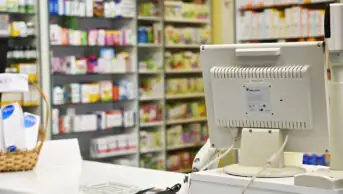
Shutterstock.com
The Department of Health and Social Care (DHSC) has proposed giving NHS staff in England, including hospital pharmacists, a 3% pay rise in 2022/2023.
In evidence submitted to the NHS Pay Review Body (NHSPRB) on 23 February 2022, the DHSC said that it had “assumed a headline pay award of 2% for NHS staff” in its budget, following the government’s spending review in October 2021.
However, the DHSC added that it also “has an additional 1% ‘contingency’ which it is choosing to make available for [Agenda for Change] pay, providing an overall affordable headline pay award of up to 3%”.
The proposed uplift comes after the government faced backlash for proposing a pay rise limited to 1% in 2021/2022, which was described as “callous” by the Guild of Healthcare Pharmacists — the body that represents hospital pharmacists.
In its evidence for the 2022/2023 pay award, the DHSC told the NHSPRB that the 2021 spending review had “provided a tight settlement for the NHS, requiring the delivery of a range of priorities and efficiencies which will need careful prioritisation in order to stay within available funding”.
It added that by offering the additional 1%, “this contingency will not be available for other priorities”, explaining that “an additional 1% of pay costs around £900m, which is equivalent to around 16,000 full-time nurses or 500,000 procedures”.
“These examples illustrate how more funding allocated towards pay than what is affordable will lead to reduced ability to tackle the elective care backlog and expand clinical capacity to deliver a more effective health and social care system,” the evidence continued.
The pay review body takes evidence from several parties — including NHS England and Improvement, the four UK governments, NHS unions and NHS employers — before producing recommendations on pay that the governments are expected to follow.
In 2021/2022, the NHSPRB recommended a 3% pay award for all staff on Agenda for Change pay bands, which was accepted by the governments in England and Wales.
However, the UK governments do not have to accept the body’s recommendations, with NHS staff in Scotland receiving a pay rise of 4% in May 2021.
Paul Day, director of the Pharmacists’ Defence Association (PDA), told The Pharmaceutical Journal that the PDA Union “believes NHS workers deserve an increase that maintains the purchasing power of their income and would urge the DHSC to think again and find ways of affording an increase that keeps pace with inflation”.
“Much work has been done in recent years to make NHS pay fit for purpose and all of that work will be undone if the award falls below established measures of inflation.
“We fully support the pay review process and urge the pay review body to consider the impact this proposed award will have on morale, recruitment and retention; all issues that recent awards have attempted to address. Our clear message to the pay review body is do not let the important progress made in recent years be undone this year,” he said.
Thorrun Govind, chair of the Royal Pharmaceutical Society’s English Pharmacy Board, said: “We’re incredibly proud of the pharmacy response and exceptional clinical leadership shown by pharmacists over the past few years of the pandemic. It’s important that all staff are valued and their work rewarded.”
Following the announcement of a 3% pay award in 2021/2022 in England, the Guild of Healthcare Pharmacists urged hospital pharmacists to consider taking industrial action in response.
The NHSPRB is expected to provide its final recommendation for 2022/2023 in May 2022.


